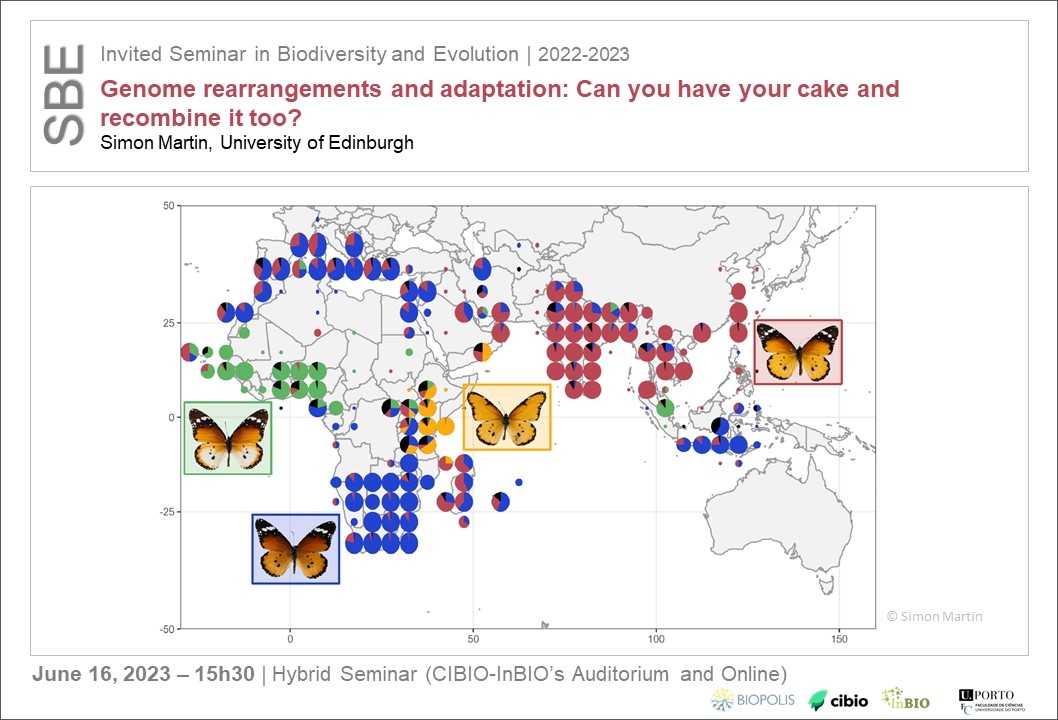Genome rearrangements and adaptation: Can you have your cake and recombine it too?
16 Jun 2023 - Simon Martin, University of Edinburgh | 15h30 | Hybrid seminar

INVITED SEMINAR IN BIODIVERSITY AND EVOLUTION
Species that live across a range of different environments often exhibit local adaptation, in which particular genetic variants (alleles) are common in some locations and rare in others. If there is gene-flow between environments, and multiple genetic loci are involved in local adaptation, this may favour genome rearrangements that maintain favourable combinations of alleles at multiple loci that are all adapted to the same environment, by suppressing recombination. However, these rearrangements may also have costs, as they could preventing the formation of new combinations of alleles that may be better suited to new environmental conditions. We still know little about the specific mechanisms that suppress recombination to support local adaptation, and the extent to which these may limit future adaptation. I will present some recent findings on the structure and evolution of a local adaptation "supergene” in the African monarch butterfly that shed light on these topics. We have found that this region of the genome evolved in multiple steps through complex structural rearrangements. Nevertheless, recombination is not entirely suppressed, and this may allow the formation of new combinations of alleles that might sometimes be better adapted than the ancient ones. I will conclude with some evidence of such a potentially adaptive "recombinant”. Overall, our findings show that genome rearrangements may be far more dynamic in their evolution than previously thought.
Dr Simon Martin is a research fellow at the University of Edinburgh’s Institute of Ecology and Evolution. During his PhD (2011-2014) and subsequent research fellowship (2014-2018) at the University of Cambridge, he studied speciation, hybridisation and the factors influencing genetic diversity in the tropical Heliconius butterflies. In 2019, Dr Martin started a Royal Society University Research Fellowship at the University of Edinburgh. Current research topics in his group focuses on the consequences of structural changes to the genome for short-term and long-term evolution. He is passionate about devising creative solutions for extracting and visualising the extensive historical information carried in genome sequences.